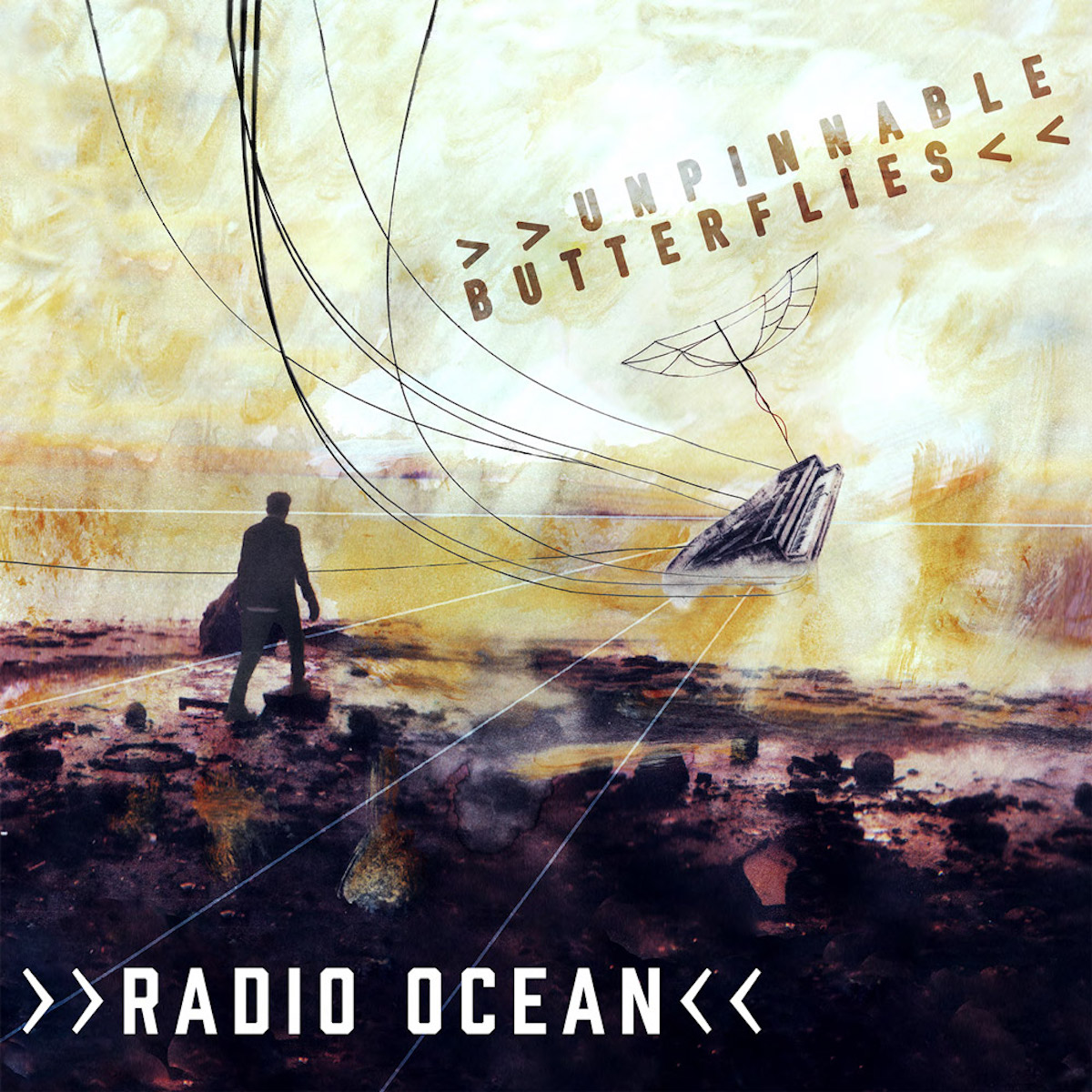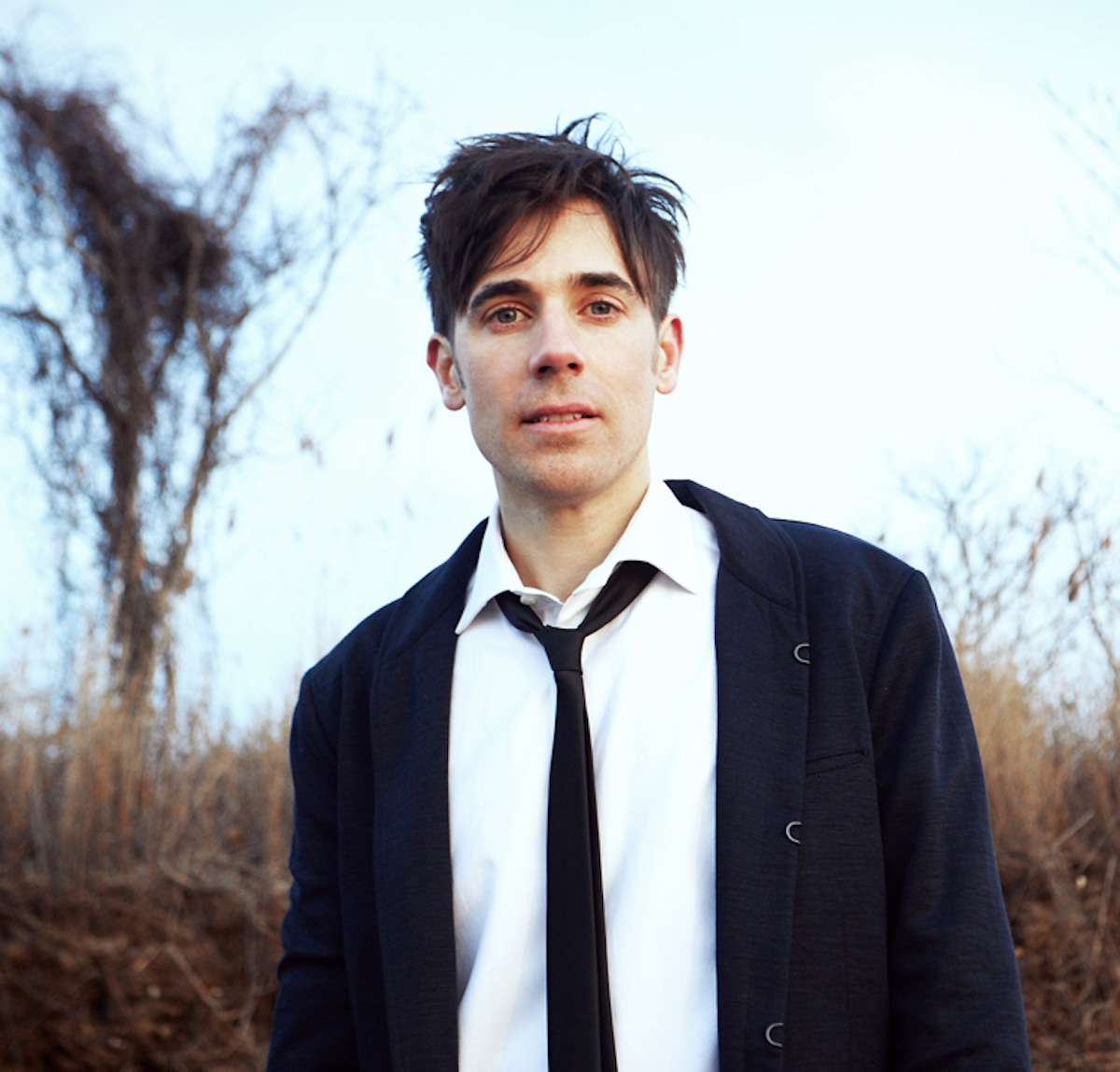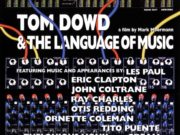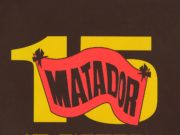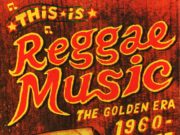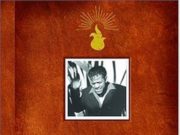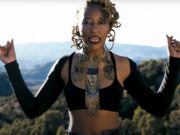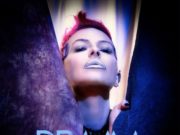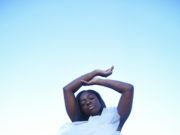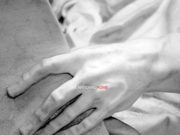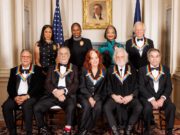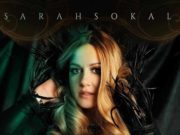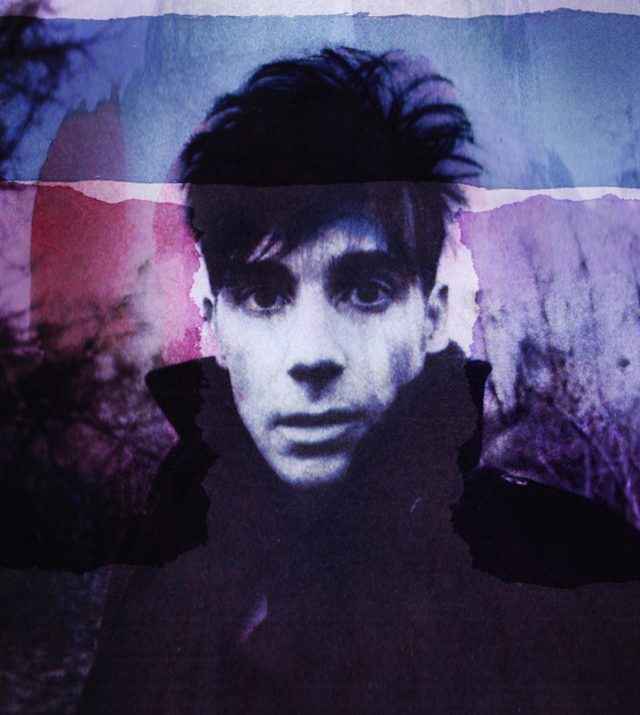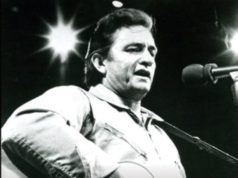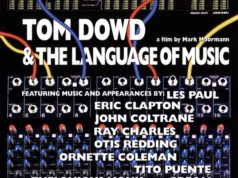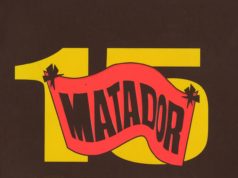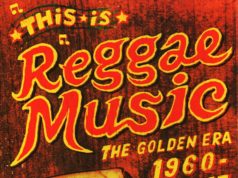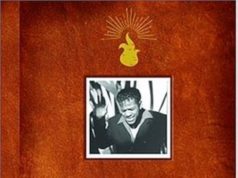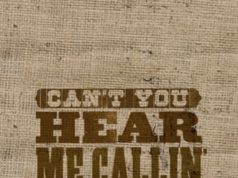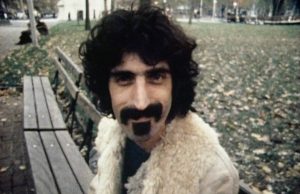Gabriel Judet-Weinshel is spreading his wings again. The high-flying singer and songwriter behind the musical collective Unpinnable Butterflies has just released his must-hear sophomore album Radio Ocean, a wonderfully diverse and sophisticated concoction that hits the sweet spot between rock, pop, jazz, country, soul, folk, world music and several other styles — all meticulously yet vibrantly rendered by a crack squad of first-call session players, and anchored by Judet-Weinshel’s rich songcraft, poetic lyrics and earnest vocals. With the album winging its way into the world, the thoughtful and literate Judet-Weinshel took some time to ponder my silly questions. If that doesn’t bring him crashing down to earth, nothing will. Here’s how it went:
Introduce yourself: Name, age (feel free to lie), home base and any other details you’d care to share — height / weight / identifying marks / astrology sign / your choice.
My name is Gabriel Judet-Weinshel. I’m Brooklyn-based, and a Scorpio (the self-stinging kind, historically).
What is your musical origin story?
I grew up in a family wonderfully welcoming to artistic proclivities, and there were a good many instruments around me from an early age: guitars, an upright piano, a clarinet. My dad and I would jam. Despite having a few years of violin from a lovely teacher as a kid and a scattering of piano and guitar lessons growing up, I always eschewed more disciplined formal training until college (and my folks didn’t push for it, which, I think, if the kid isn’t willing, can stifle music curiosities if the teachers aren’t right, so good on mom and dad), when I finally realized that my ability to sit down at the piano and improvise was being curtailed by my lack of theory. I couldn’t quite remember how to write a flat when I first started in the music program at Sarah Lawrence College. Sarah Lawrence was where I first met Scott Healy — who produced both of my singer-songwriter records. He was my jazz piano teacher and ran the jazz colloquium. Scott for many years was on the Conan O’Brien show house band, but he’s also a Grammy-nominated jazz composer and much sought-after session player. We stayed in touch after I graduated, and at one point I played Scott a collection of demos, which he liked enough to offer to produce my first record. Radio Ocean is our second collaboration.
What’s your latest project?
Radio Ocean is my new record — a sprawling and raucous, 13-tune record affair, over 10 years in the making. The record expands on the sound of my first record The Exile of Saint Christopher, which had a more intimate sound. Radio Ocean is a free-wheeling and eclectic stew, channeling everything from country to west African guitar riffs to classic rock. We have some truly phenomenal players and guests on the record, from über drummers Shawn Pelton (Bruce Springsteen, Johnny Cash) and Curt Bisquera (Mick Jagger, Tom Petty) to totemic bassist Lee Sklar (James Taylor, Jackson Browne, Carole King). We have Jason Orme (Alanis Morissette) on guitar, a full horn session comprised of Conan O’Brien’s Basic Cable Band veterans, as well as featured guest appearances by Americana darlings Birds of Chicago (JT Nero and Allison Russell — Allison’s gorgeous record Outside Child has had a meteoric success of late), the saxophone prodigy Grace Kelly (Jon Batiste, Lee Konitz), chanteuse Jessica Childress (Aloe Blacc, Portugal. The Man), indie maverick Kate Tucker, and the wonderful Perla Batalla (long-time Leonard Cohen collaborator). My colleague Danny Clinch, the esteemed rock photographer and director, plays harmonica.
What truly sets you apart from other artists?
As equal parts filmmaker and musician, my polymath career has been circuitous for sure. I’ve had the honor of photographing some music luminaries — U2, Elvis Costello, Bruce Springsteen, Alicia Keys, Judy Collins, Sheryl Crow, Lil’ Wayne, Ani DiFranco, Lyle Lovett, Counting Crows, James Taylor, The Black Keys, Nicki Minaj and Elton John — and directing music videos for Ben Harper, Braison Cyrus and Joseph Arthur. Spending so much time as a fly on the wall with some of my heroes has been a master class of sorts in how to be a musician.
How will my life improve by listening to your music?
My gosh, I wouldn’t deign to be so presumptuous. Are you in the mood for a multi-keyed paean to David Foster Wallace? Would you be curious to hear how a tune in 13/8 and 7/8 (giving a panoptic view of our planetary crisis) can groove? At the same time, would a ballad about ruined love, with a verse about shooting cans in the backyard, feel like an apt palate cleanser to the aforementioned? If so, I’m hopeful I could help enhance, at least momentarily and by a soupcon, your experience on the planet.
Tell us about the first song you wrote and / or the first gig you played.
The first poet I really dug was Robert Creeley (associated with the Black Mountain Poets). When I was maybe 12 or so, I picked an edition of his collected poems, For Love, off my parents bookshelf and kept returning to it. I set a short poem of his, Oh No, to music. I had no confidence in my ability to write lyrics, so cribbing his words was my shortcut to making a song: “If you wander far enough / you will come to it / and when you get there / they will give you a place to sit / for yourself only, in a nice chair / and all your friends will be there / with smiles on their faces / and they will likewise all have places.” Someplace there’s a recording of this with my dear friend and first musical collaborator Nicole Champagne (we had a band in high school called Daedalus), singing it in a loud coffeehouse in Seattle, Washington.
What is the best / worst / strangest / most memorable performance you have given?
One night at the East Village’s Parkside Lounge, the old and storied dive on Houston street, playing solo to literally an empty room (the sound guy went out for a cigarette). My girlfriend (now wife) Pilar, arrived to scoop me (she had to work late that night, but believe me she was endlessly wonderful and supportive in attending nearly all of my N.Y. gigs), and when I explained that I had just played to an empty room, she said kindly, ‘We’ve all played to empty rooms.’
What is the best / worst / strangest / most memorable performance you’ve seen?
I shot and directed a documentary for Madison Square Garden about subway performers around 2010, and we found some weird and wonderful cats in the subways. There was Theo Eastwind, an ethereal singer songwriter; and Bala Tounkara, a dexterous kora player from Mali; and there was a woman (I’ve forgotten her name) who played a saw and, incredibly, made a good living doing it. Then, in a bit of another life, I made a living through much of my 20s as a street juggler. I shared a pitch (busker terminology for a performance spot) at certain points with S.K. Thoth (often just Thoth), who is this enchanting performer and dancer (there was actually an Oscar-winning documentary made about him). And then at times I would alternate with the tumblers from the Bronx. It was a rich and wonderful assemblage, and I still think the most honest, and sometimes most appreciative, audience one can garner is on the street.
What living or dead artists would you like to collaborate with?
I will forever lament not being able to meet or work with Leonard Cohen. He has always been a cynosure for me, both in how he worked as an artist, but also in how he lived, spiritually and ethically, his wry wit and humility.
What artist or style of music do you love that would surprise people?
I broke a toe once dancing with abandon to Lauryn Hill. I was in socks, two glasses of wine in, and trying to do that move where you jump over your own leg — I think it’s a 1990s hip-hop move, and I really could do it at a once younger and lither age. Needless to say, I did not stick the landing. There is video of this moment, taken by Pilar. The accompanying dialogue to the video, as I approach the move, is this: ‘Oh no. Please don’t.’ And then the video (to Pilar’s credit) ends quite abruptly (she rushed to my aid).
What words do you hope people use when they describe you?
Kind and hard-working.
What useful (or useless) skills do you have outside of music?
I can juggle seven balls.
Who can you do an impression of?
I’m terrible at accents. Please don’t ask. But my friends Jessie and Eric are quite fond of my British Woman in a Ditch, Covered in Dirt, which we invariably imagine to be a character out of Dickens. It’s a cringe-worthy Monty Python bastardization. So really though, please don’t ask.
What do you collect?
Quotations. In my room, one of my favorites: ‘Poets are band leaders who have failed.’ — Ayi Kwei Armah
If money was no object, where would you live?
I’d probably still live in battered, reeling, magnificent New York City. Brooklyn is home for us, where our friends and some dear family are, and so much of our histories. Both my wife and I have most of our families far away (hers are much further — in Manila), so that is a constant ache, but we’re here for now. For me, money just represents time — the ability to do my own work, unfettered by the more commercial or corporate work I’ll take on for necessity, and I dream of a time untrammeled by those sorts of mercenary obligations. I’d love a real piano (ah, New York apartments), and a day to wander the city, stop into museums and read at a coffee shop, and not feel the incessant anxiety of keeping the lights on. The pace and exigencies of New York life scarcely allow for that, but it’s important to remember to try and take that sort of time.
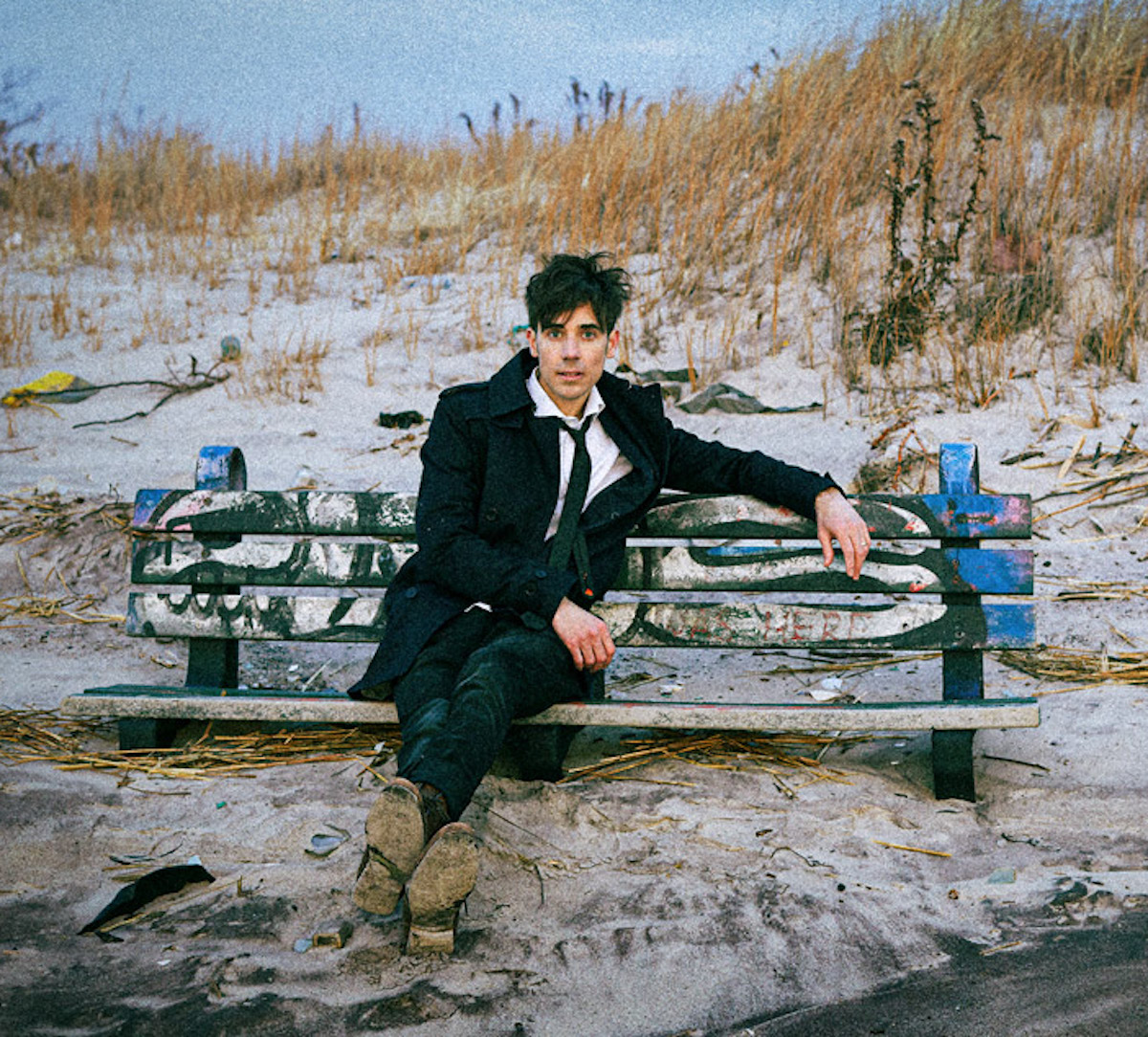
Which historical event do you wish you had witnessed?
It would have been pretty great to sit in the corner while Miles Davis et al. recorded Kind of Blue, to hear 20th century music being revolutionized in real time.
What are you afraid of?
The climate crisis. I mean, shouldn’t we all be frickin’ terrified (and doing way more about it)?
What’s your motto?
I don’t know if it’s quite my motto, but in the wake of the pandemic, I’ve had the last few lines of John Ciardi’s poem The Gift rattling around in my head: ‘Hell is the denial of the ordinary. Nothing lasts. Clean white paper waiting under a pen is a gift beyond history and hurt and heaven.’
What’s always in your refrigerator?
I’m lucky. My wife is a ridiculously talented professional chef, so our fridge abounds with various pickling projects, varietals of chili, yuzu kosho, duck fat, pickled quail eggs, organic miso, a plurality of cheeses, and a bevy of delicious leftovers from whatever (if she is not working at a client’s) she is developing at home. I’m ridiculously spoiled.
What was your favourite class in school and why?
One day in seventh grade, an animator came to school as part of a guest series. (I went to public school on a small island in the Pacific Northwest — what a coup to bring that fellow to the island.) He taught us how to do old-school film animation, interpolating movement by hand one drawing at a time, and at the end of the week we went to his studio and photographed all of our animations with his huge 16mm overhead animation rig. He was fantastically generous with his time and spirit, and I feel like I learned a lot in that week not only about animation, but also about being an artist, and how to live well. I remember him recounting how he often asked students to draw a road. He explained that he felt that those who drew a windy road, with turns and dips and rises, might be better positioned for the vicissitudes of life than those who just drew a straight runway, disappearing into an oblivion of a horizon line. I’ve always remembered that. The circuitous path.
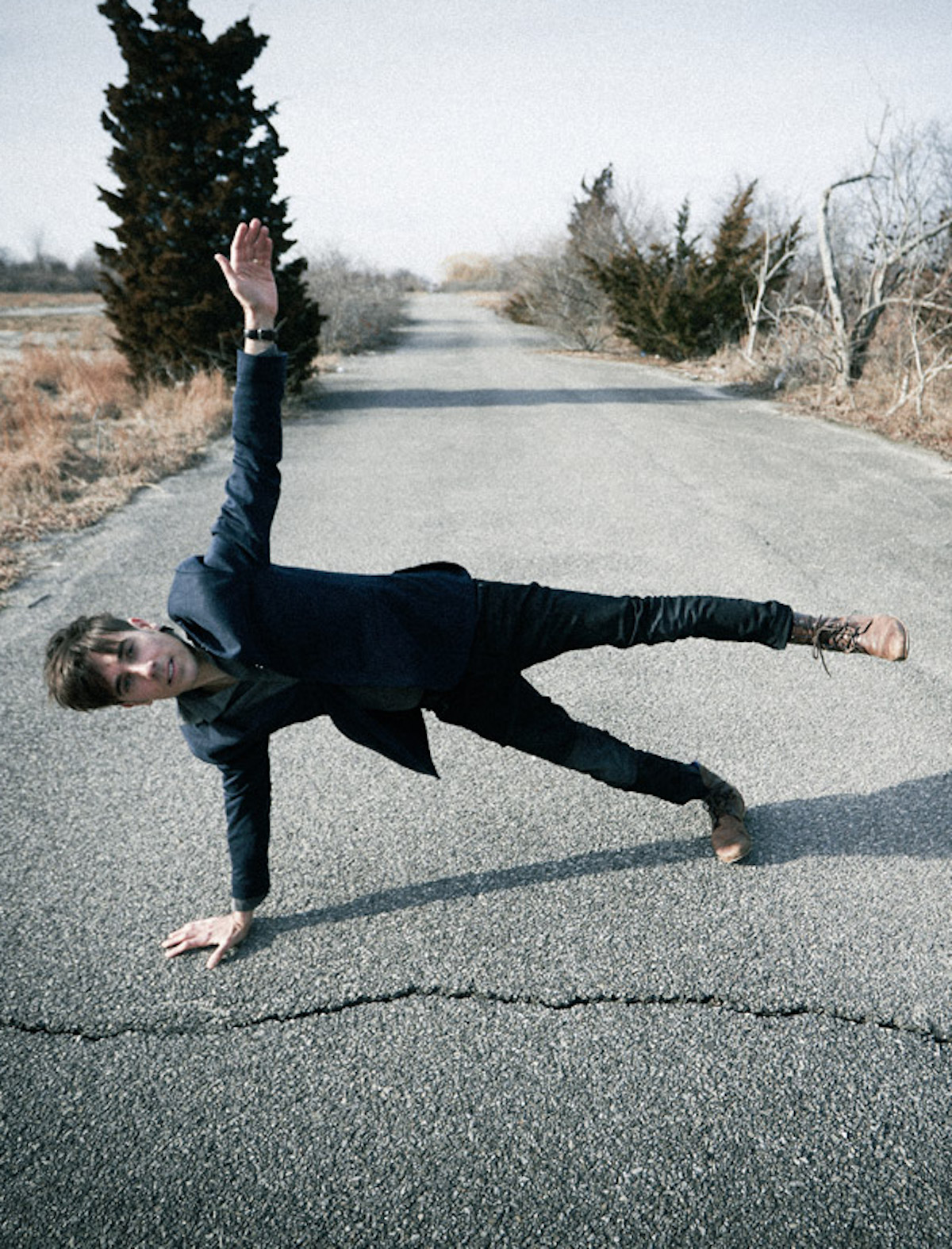
What world record would you like to break?
Just the thought of trying to break a world record makes me at once anxious and tired. I feel very mixed about competition, and I don’t think competition among artists, or people in general a lot of the time, is necessarily always healthy. Among artists, especially, it’s applying such a capitalist rubric on an impulse that is anything but. I’m not a fan of competition shows, like The Voice, etc. (though I’ll admit some of those stories are so inspirational, and the talent phenomenal).
What was the worst job you ever had?
I was an execrable waiter. Brief stint at a perfectly good restaurant in the East Village. I found every aspect of it stressful and overwhelming. I was pretty good at remembering folks’ orders, but the entire experience felt like one of those anxiety dreams where you’re in the high school play, cast maybe as the lead, but you can’t remember your lines, and you have no pants. Around the same time I was waiting tables (and again, it was really a short amount of time), I went back to juggling on the street. It was summertime and the weather was good, the city pullulating with tourists, so quickly I realized I could make more money tossing knives and apples around in front of the Met or Bethesda Fountain in Manhattan than schlepping people’s orders and trying to understand wine. I quit soon after. I’m still not great at understanding wine, but proud to say that, as a waiter, I never dropped anything.
Listen to Radio Ocean, watch the video for You and check out a documentary on Unpinnable Butterflies above, and track Gabriel Judet-Weinshel at his website, Instagram, Facebook and Twitter.
